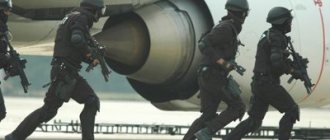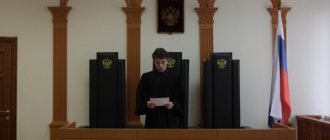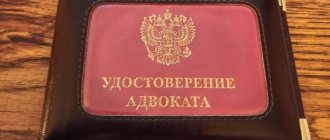1. Theft of an air or water transport vessel or railway rolling stock, as well as the seizure of such a vessel or train for the purpose of hijacking -
shall be punishable by imprisonment for a term of four to eight years, with or without restriction of freedom for a term of up to one year.
2. The same acts committed:
a) by a group of persons by prior conspiracy;
b) has become invalid. — Federal Law of December 8, 2003 N 162-FZ;
c) with the use of violence dangerous to life or health, or with the threat of such violence;
d) with the use of weapons or objects used as weapons -
shall be punishable by imprisonment for a term of seven to twelve years with restriction of freedom for a term of up to two years.
3. Acts provided for in parts one or two of this article, if they were committed by an organized group or caused by negligence the death of a person or other grave consequences, -
shall be punishable by imprisonment for a term of eight to fifteen years with restriction of freedom for a term of one to two years.
4. Acts provided for in parts one, two or three of this article, associated with the commission of a terrorist act or other implementation of terrorist activities, -
shall be punishable by imprisonment for a term of fifteen to twenty years with restriction of freedom for a term of one to two years or life imprisonment.
- Article 210.1. Occupying the highest position in the criminal hierarchy
- Article 212. Mass riots
Commentary to Art. 211 of the Criminal Code of the Russian Federation
The main object of the crime is public safety. An additional object is relations to protect life and health, property of citizens and legal entities.
An optional object is relations to protect human life.
Aircraft hijacking is an international crime. Even in the Convention for the Suppression of Unlawful Seizure of Aircraft (The Hague, December 16, 1970), it was noted that acts of unlawful seizure or control of an aircraft in flight threaten the safety of persons and property, seriously disrupt air traffic and undermine the faith of the peoples of the world in the safety of civil aviation.
———————————
Collection of current treaties, agreements and conventions concluded by the USSR with foreign states. Vol. XXVII. M., 1974. S. 292 - 296.
Provisions on the criminality of similar actions with sea-going vessels are contained in the Convention for the Suppression of Unlawful Acts against the Safety of Maritime Navigation (concluded in Rome on March 10, 1988).
———————————
NW RF. 2001. N 48. Art. 4469.
The subject of the crime is an air or water transport vessel, as well as a railway rolling stock.
The concept of an aircraft is given in Art. 32 of the Air Code of the Russian Federation of March 19, 1997. An aircraft is an aircraft supported in the atmosphere due to interaction with air, different from interaction with air reflected from the surface of the earth or water (airplane, helicopter, airship, trike, glider, etc. .).
A water transport vessel is a sea, river, lake, self-propelled or non-self-propelled floating structure used for navigation purposes. The purposes of shipping include the transportation of goods, passengers, towing ships and other floating objects, searching, exploration and extraction of minerals, construction, hydraulic engineering, underwater technical work, rescue operations, scientific research and some other purposes (educational, sports, cultural ). The subject of theft are ships, yachts, ferries, boats, submarines, tugs, floating cranes and other similar technical structures. Not covered by Art. 211 of the Criminal Code of the Russian Federation, small inland watercraft and other floating objects with a capacity of less than 80 tons with main engines with a power of less than 55 kW or with outboard motors regardless of power, jet skis (jet skis), rowing boats, kayaks.
The definition of a railway vehicle (rolling stock) is given in the Federal Law of January 10, 2003 N 17-FZ “On Railway Transport in the Russian Federation” (Article 2). These are locomotives, freight cars, locomotive-hauled passenger cars and motor-car rolling stock, as well as other railway rolling stock designed to ensure transportation and the functioning of infrastructure (for example, railcars).
———————————
NW RF. 2003. N 2. Art. 169.
The objective side of the crime includes two types of actions: 1) theft of an air or water transport vessel or railway rolling stock; 2) seizure of such a vessel or convoy for the purpose of hijacking.
Hijacking is the unlawful taking of an air, water transport vessel, as well as a rolling railway stock and its use for flight, travel or as a floating craft.
Seizure means the unlawful seizure of an aircraft, water transport vessel, as well as a rolling railway stock and the establishment of control over it for the purpose of subsequent theft.
Seizure and hijacking are possible both in relation to a moving or stationary vessel or railway rolling stock. According to Part 1 of Art. 211 of the Criminal Code of the Russian Federation, theft and seizure can be committed without violence, using deception, with the use or threat of violence that is not dangerous to life or health (beatings, restriction of freedom in the form of tying, locking, holding). The threat of violence means intimidation of victims with the immediate use of violence that is not dangerous to life or health.
Violence or the threat of its use can be directed at the crew of a ship or rolling stock, passengers, technical personnel, security guards and any other persons trying to prevent the commission of a crime.
The elements of hijacking are formal, the act is completed from the moment the vehicle begins to move or, if the vessel was in motion at the time of the hijacking, from the moment the direction of movement changes. Capture is also a formal crime. It ends from the moment the ship is taken over. The occurrence of socially dangerous consequences is not required for the crime to be declared completed.
From the subjective side, the act is characterized by direct intent. When committing an act in the form of hijacking, a mandatory sign of the subjective side is the purpose of hijacking an aircraft, water transport vessel or rolling stock. The motives for committing a crime can be anything - selfish, hooliganism, the desire to use a ship or railway rolling stock to commit a crime, the desire to go for a ride.
The general subject of the crime is a sane person who has reached the age of sixteen.
The qualifying elements of the crime provided for in Part 2 of the article in question of the Criminal Code of the Russian Federation are:
- paragraph “a” - commission of an act by a group of persons by prior conspiracy;
- clause “c” - the use of violence dangerous to life or health, or with the threat of such violence;
- paragraph “d” - the use of weapons or objects used as weapons.
The signs specified in paragraphs “a” and “d” of Part 2 of Art. 211 of the Criminal Code of the Russian Federation, have the same content as the previously disclosed paragraphs “a” and “c” of Part 2 of Art. 206 of the Criminal Code of the Russian Federation “Hostage-taking”.
Violence dangerous to life or health should be understood as violence that resulted in the infliction of grave and moderate harm to the health of the victim, as well as the infliction of minor harm to health, causing a short-term health disorder or a minor permanent loss of general ability to work.
These consequences are covered by the crime under Part 2 of Art. 211 of the Criminal Code of the Russian Federation, and qualifications in conjunction with Art. Art. 115, 112, 111 of the Criminal Code of the Russian Federation is not required. The threat can be expressed in the threat of murder or causing any degree of harm to health. The form of the threat does not matter to qualify the crime. It can be expressed verbally, by gestures, by a note, etc. In the event of a threat of murder or infliction of grievous bodily harm, everything done is covered by the signs of paragraph “c” of Part 2 of Art. 211 of the Criminal Code of the Russian Federation and the imputation of Art. 119 of the Criminal Code of the Russian Federation “Threat of murder or infliction of grievous bodily harm” is not required.
Particularly qualifying signs of the hijacking or seizure of an air, water transport vessel or rolling stock (Part 3 of Article 211 of the Criminal Code of the Russian Federation) are as follows: the commission of an act by an organized group or the death of a person or other grave consequences due to negligence. In the event of consequences in the form of death or serious injury to health, the corpus delicti is material; the subjective side is characterized by two forms of guilt: intentional seizure or theft and careless (both frivolity and negligence) attitude towards the consequences.
Intentional causing of death to one or more persons during theft or capture requires additional qualification under Art. 105 of the Criminal Code of the Russian Federation.
Other grave consequences may consist of destruction or damage to a ship or train, serious disruption of flight schedules, train movement, serious or moderate harm to the health of many persons, etc. This is an evaluative sign that must be established in each specific case, taking into account the circumstances of the case.
Judicial practice under Article 211 of the Criminal Code of the Russian Federation
Appeal ruling of the Supreme Court of the Russian Federation dated July 12, 2017 N 205-APU17-21
According to the note to Art. 205.3 of the Criminal Code of the Russian Federation, a person who has committed a crime under Art. 205.3 of the Criminal Code of the Russian Federation, is exempt from criminal liability if it informed the authorities about the completion of training, knowingly for the student, conducted for the purpose of carrying out terrorist activities or committing one of the crimes provided for in Art. Art. 205.1, 206, 208, 211, 277, 278, 279, 360 and 361 of the Criminal Code of the Russian Federation, contributed to the disclosure of the crime committed or the identification of other persons who underwent such training, carried out, organized or financed such training, as well as the places where it was carried out and if in it actions do not contain any other corpus delicti.
Appeal ruling of the Judicial Collegium for Criminal Cases of the Supreme Court of the Russian Federation dated March 28, 2019 N 4-APU19-6
As follows from the presented materials, the law enforcement agencies of Uzbekistan are prosecuting Rasuleva for committing crimes under paragraph “a” of Part 3 of Art. 168, part 1 art. , 211 and paragraph “b”, part 2 of Art. 168 of the Criminal Code of the Republic of Uzbekistan and is accused of having, through deception and abuse of trust, seized S.’s property and funds on an especially large scale in the period from August 30, 2016 to October 2, 2016 in the Almazar district of Tashkent, the Republic of Uzbekistan, and on October 12 2016, acting repeatedly, through deception and abuse of trust, took possession of the property of victim A. causing her material damage in a significant amount.
Resolution of the Presidium of the Supreme Court of the Russian Federation dated May 29, 2019 N 21-P19pr
According to Part 3.2 of Art. According to the Criminal Code of the Russian Federation (as amended by Federal Law No. 186-FZ of July 3, 2022), the time a person is held in custody is counted toward the term of imprisonment at the rate of one day for one day in relation to those convicted of particularly dangerous recidivism of crimes; convicts for whom the death penalty by way of pardon has been replaced by life imprisonment or imprisonment for a term of twenty-five years; convicted of crimes under Art. Art. 205 - 205.5, part 3, 4 art. 206, part 4 art. 211, part 2, 3 art. 228, art. Art. 228.1, 229, 275, 276, 361 of the Criminal Code of the Russian Federation, and crimes associated with the implementation of terrorist activities, provided for in Art. Art. 277 - 279 and 360 of the Criminal Code of the Russian Federation.
Appeal ruling of the Judicial Collegium for Military Personnel Cases of the Supreme Court of the Russian Federation dated June 27, 2019 N 201-APU19-18
Thus, participation in the activities of a terrorist organization is understood as the commission by a person of deliberate actions related to the continuation or resumption of the activities of this organization, and participation in a terrorist community is understood as the inclusion of a person in a stable group of two or more persons with the intention of participating in terrorist activities or preparation or commission of one or more crimes provided for in Articles 205.1, 205.2, 206, 208, 211, 220, 221, 277, 278, 279, 360 and 361 of the Criminal Code of the Russian Federation, or other crimes for the purpose of promoting, justifying and supporting terrorism, including Art. 205.5 of the Criminal Code of the Russian Federation is not specified, as well as participation in the preparation for or in the commission of such crimes, as well as the performance by a person of functional duties to ensure the activities of such a community. When a participant in a terrorist organization commits a specific crime, his actions are subject to qualification according to the totality of crimes provided for in Part 2 of Art. 205.5 of the Criminal Code of the Russian Federation and the corresponding article of the Special Part of the Criminal Code of the Russian Federation, which was established in this criminal case.
Appeal ruling of the Judicial Collegium for Criminal Cases of the Supreme Court of the Russian Federation dated July 16, 2019 N 5-APU19-57
Indicates that in violation of paragraph 2 of Art. 58 of the Convention on Legal Assistance and Legal Relations in Civil, Family and Criminal Matters, a copy of the court decision on detention with numerous shortcomings is attached to the request for extradition for criminal prosecution. In particular, the ruling of the judge of the Mirzo-Ulugbek District Court for Criminal Cases of Tashkent dated December 29, 2022 does not indicate the surnames, first names and patronymics of the investigator who filed the petition and the prosecutor with whose consent such a petition was filed; contains a description of the acts allegedly committed by Fayazov, and their qualification under paragraph “b” of Part 2 of Art. 168 and part 1 of Art. 211 of the Criminal Code of the Republic of Uzbekistan, however, in the descriptive and motivational part of the judge’s ruling there is no description of the actual circumstances of the act provided for in Part 1 of Art. 211 of the Criminal Code of the Republic of Uzbekistan (giving a bribe); there is no information about when and under what articles of the Criminal Code of the Republic of Uzbekistan Fayazov was charged, while it follows from the definition that Fayazov committed two episodes of criminal activity (the first - in relation to the victim M. and the second - in relation to the victim Kh.).
Appeal ruling of the Judicial Collegium for Military Personnel Cases of the Supreme Court of the Russian Federation dated August 20, 2019 N 208-APU19-6
From the disposition of Part 1.1 of Art. 205.1 of the Criminal Code of the Russian Federation it follows that this crime is completed from the moment of commission of any actions to involve a person in the commission of at least one of the crimes provided for in Art. Art. 205, 205.3, 205.4, 205.5, part 3, 4 art. 206, part 4 art. 211 of the Criminal Code of the Russian Federation, regardless of whether the person involved committed the corresponding crime of a terrorist nature.
Appeal ruling of the Judicial Collegium for Military Personnel Cases of the Supreme Court of the Russian Federation dated 09/03/2019 N 205-APU19-27
Within the meaning of Art. 205.1 of the Criminal Code of the Russian Federation, the financing of terrorism should be recognized, along with the provision of financial services, the provision or collection of not only money, but also material resources with the understanding that they are intended to finance the organization, preparation or commission of at least one of the crimes provided for in Articles 205, 205.1, 205.2, 205.3, 205.4, 205.5, 206, 208, 211, 220, 221, 277, 278, 279 and 360 of the Criminal Code of the Russian Federation, or for financing or other material support of a person for the purpose of committing at least one of these crimes, or to support an organized group, illegal armed group, criminal community (criminal organization) created or being created to commit at least one of these crimes.
Appeal ruling of the Judicial Collegium for Military Personnel Cases of the Supreme Court of the Russian Federation dated September 25, 2019 N 201-APU19-44
Within the meaning of Art. 205.1 of the Criminal Code of the Russian Federation, the financing of terrorism should be recognized, along with the provision of financial services, the provision or collection of not only money, but also material resources with the understanding that they are intended to finance the organization, preparation or commission of at least one of the crimes provided for in Articles 205, 205.1, 205.2, 205.3, 205.4, 205.5, 206, 208, 211, 220, 221, 277, 278, 279 and 360 of the Criminal Code of the Russian Federation, or for financing or other material support of a person for the purpose of committing at least one of these crimes, or to support an organized group, illegal armed group, criminal community (criminal organization) created or being created to commit at least one of these crimes.
Appeal ruling of the Judicial Collegium for Military Personnel Cases of the Supreme Court of the Russian Federation dated September 24, 2019 N 203-APU19-14
According to paragraph 2 of Art. 24 of the Federal Law of March 6, 2006 N 35-FZ “On Countering Terrorism” an organization is recognized as terrorist and is subject to liquidation (its activities are prohibited) by a court decision on the basis of an application from the Prosecutor General of the Russian Federation or a subordinate prosecutor if, on behalf of or in the interests of the organization, the organization, preparation and commission of crimes provided for in Articles 205 - 206, 208, 211, 220, 221, 277 - 280, 282.1 - 282.3, 360 and 361 of the Criminal Code of the Russian Federation are carried out. A court decision to liquidate an organization (ban its activities) applies to regional and other structural divisions of the organization.
Appeal ruling of the Judicial Collegium for Military Personnel Cases of the Supreme Court of the Russian Federation dated October 22, 2019 N 208-APU19-10
In accordance with Art. 205.1 of the Criminal Code of the Russian Federation, the financing of terrorism should be recognized, along with the provision of financial services, the provision or collection of not only money, but also material resources with the understanding that they are intended to finance the organization, preparation or commission of at least one of the crimes provided for in Articles 205, 205.1, 205.2, 205.3, 205.4, 205.5, 206, 208, 211, 220, 221, 277, 278, 279 and 360 of the Criminal Code of the Russian Federation, or for financing or other material support of a person for the purpose of committing at least one of these crimes, or to support an organized group, illegal armed group, criminal community (criminal organization) created or being created to commit at least one of these crimes.
Appeal ruling of the Judicial Collegium for Military Personnel Cases of the Supreme Court of the Russian Federation dated December 5, 2019 N 224-APU19-11
The argument that the case has not established the involvement of Shaykhvaliev, R. and G. in the preparation or commission of one of the crimes provided for in the note to Art. 205.1 of the Criminal Code of the Russian Federation is untenable, since it is decisive for establishing the fact of the commission of a crime under Part 4 of Art. 205.1 of the Criminal Code of the Russian Federation is confirmation by the totality of collected evidence of the convicted person’s awareness that the funds, the collection and transfer of which he organized, are intended to finance the organization, preparation or commission of at least one of the crimes provided for in Articles 205, 205.1, 205.2, 205.3, 205.4, 205.6, 206, 208, 211, 220, 221, 277, 278, 279 and 360 of the Criminal Code of the Russian Federation, or for financing or other material support of a person for the purpose of committing at least one of these crimes, or for providing for an organized group, illegal armed group , a criminal community (criminal organization) created or being created to commit at least one of these crimes.
Commentary on Article 211 of the Code of Criminal Procedure of the Russian Federation
1. The condition for reopening the case is the non-expiration of the statute of limitations.
2. The decision to resume the preliminary investigation or inquiry may be made on the basis of a court decision (based on the results of consideration of the complaint of the interested person - Article 125 of the Code of Criminal Procedure). The head of the investigative committee cancels the decision of the investigator (see clause 1.22 of the Order of the Investigative Committee of the Russian Federation of January 15, 2011 N 1 “On the organization of procedural control in the Investigative Committee of the Russian Federation”), the prosecutor or the head of the inquiry unit - the decision of the investigator (clause 6, part 2 of Art. 37, clause 3, part 1, article 40.1, part 3.1, article 223).
Part 1.1 com. Article regulates the powers of the prosecutor to cancel the decision to suspend the preliminary investigation. Order of the Prosecutor General's Office of the Russian Federation dated June 2, 2011 N 162 “On the organization of prosecutorial supervision over the procedural activities of preliminary investigation bodies,” the prosecutor is ordered to ensure verification and study of the materials of all suspended criminal cases within one month from the date of the relevant decision.






